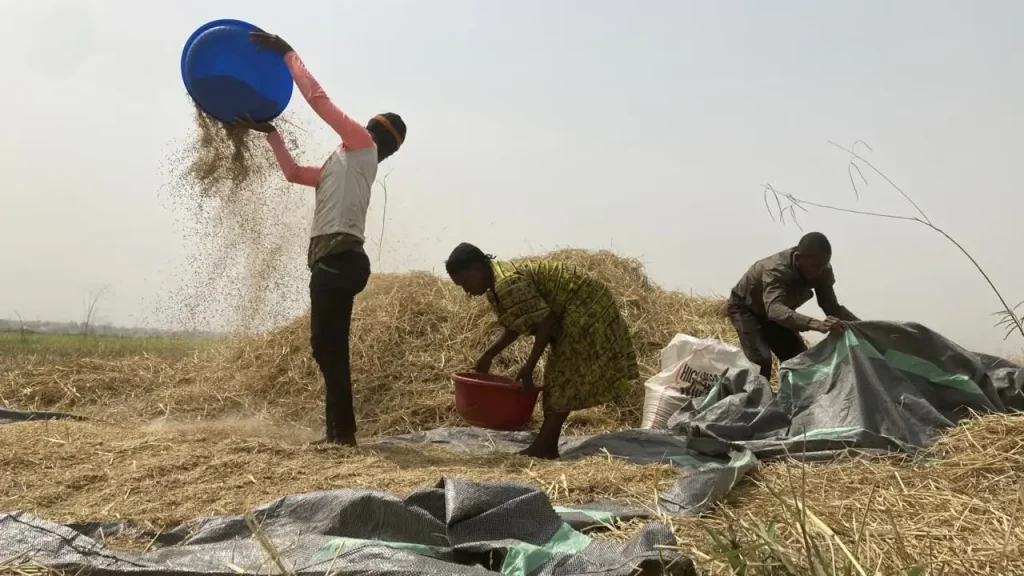A dire food insecurity crisis is gripping West and Central Africa, with over 50 million people at risk of hunger unless urgent action is taken, warn UN agencies and NGOs like UNICEF and Oxfam. The region, particularly countries like Nigeria, Mali, and Chad, is grappling with unprecedented levels of malnutrition and displacement, driven by conflict and climate challenges.
Escalating Hunger and Malnutrition
A recent survey, conducted with governments and the Economic Community of West African States (ECOWAS), projects that 52 million people across Senegal, Burkina Faso, Mali, Niger, Cameroon, and Nigeria will struggle to access safe and nutritious food during the lean season. This marks a significant increase from previous estimates, with food insecurity having quadrupled in the region over recent years. Children under five are particularly vulnerable, with 17 million suffering from acute malnutrition globally, a crisis acutely felt in West and Central Africa. In Nigeria, 16% of the population—approximately 30 million people—faces food insecurity, while Chad and Sierra Leone could see up to 20% of their populations affected. In Mali’s Menaka region, thousands are at risk of catastrophic hunger, the most severe level of food insecurity.
Conflict as a Primary Driver
Conflicts are a leading cause of this crisis, according to the International Rescue Committee (IRC). Sadou Soumana, an IRC technical advisor, explained that violence displaces millions, including agro-pastoralists, disrupting agricultural production. “Fields lie abandoned, and cattle herds are decimated, directly undermining livelihoods,” Soumana noted. This is evident in areas like Agatu village in Benue, Nigeria, where violent attacks have destroyed farmlands and seedlings, leaving farmers unable to sustain their communities. Other conflict-affected regions, such as the Democratic Republic of Congo, Central African Republic, Sudan, and South Sudan, also face heightened risks, while Guinea, Benin, Ghana, and Côte d’Ivoire may see relatively stable conditions.
Climate Change Exacerbates the Crisis
The climate crisis significantly worsens food insecurity, particularly in the Sahel, where 80% of households rely on rain-fed agriculture. Climate change and drought degrade ecosystems, reduce soil fertility, and lower crop yields, as Soumana highlighted. These environmental challenges, compounded by the El Niño weather pattern, have intensified food shortages across the region, making sustainable farming increasingly difficult.
Urgent Need for Funding and Action
Despite the growing crisis, humanitarian response plans remain severely underfunded, with only 10% of the needed financing secured for Central Africa. NGOs and UN agencies, including the World Food Programme and FAO, call for collective action and sustained funding to address food and nutritional insecurity. Without immediate intervention, the region risks further deterioration, threatening millions with hunger and malnutrition.






